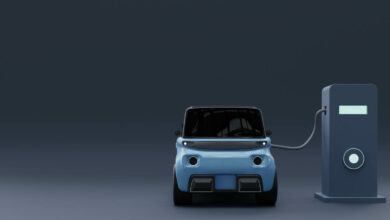Give & take
The way we were all forced to live due to the recent pandemic drew back the curtains on many issues, some that have been festering for as long as anyone could remember. The relationship between boss and employee has generally been accepted as one of doing what is asked of you, in return for a paycheck, which in turn provides you with the means to live within the status quo.
This model has served as a pillar, from the industrial revolution until today, where it still flourishes, for the most part, in every corner of the world. Currently, as people have become more aware of their existence and their place in the scheme of things, workers seem to be realizing that maybe there is room to negotiate within the accepted norms and the workplace is where this realization seems to have hit the hardest. It’s no surprise, given that so many of us spend such a large chunk of our lives at work. Work has become so engrained in our lives that many don’t know what to do with themselves if they’re not working.
The current work-from-home trend, which has actually been a topic of discussion for a number of years, came about because the pandemic forced the hand of businesses; It was sink or swim, either people worked from home, or no work would get done. Obviously, only people who could work via a computer could continue to perform their daily tasks, but these are many and once they got a taste of being able to work without going through traffic or taking crowded public transit, it was game over for the status quo. Again, many people didn’t even have that option, but some stats show that half of workers in the European Union use a computer to work, so there are literally millions of people that could work from home. But working from home isn’t as positive as it may sound.
Cities are geared around the people going to and from work. If, all of a sudden, a large percentage began working from the place where they live, all the business that support these people on a daily basis and rely on them for their survival would curl up and wither away. We all know how much businesses would struggle if this were to happen. Just imagine all the places you stop off at when travelling to and from work. On the upside, less cars, pollution, litter, sick people, even crime, just to name a few. It’s obvious that if working from home became a thing, urban centres would have to be realigned for the new reality. Businesses would have to create new models for themselves and some would forcibly disappear.
There’s also the downside of people sitting alone on their butts all day, which would cause health problems both physical and mental. It’s bad enough that the new generations are losing the once natural ability to just hang and socialize, if millions become accustomed to flying solo all day, socially we would all become disastrously inept. Something else is imbalanced, it seems that unionized workers might be the only ones able to negotiate the way they spend their workday. The collective wields more power, but governments cannot allow for a two-tier system. Everyone has the right to such an option.
As in every case, an extreme is never sustainable, so working from home may be very cool, but there needs to be a middle ground. People need to get out and rub shoulders with others. We need the fresh air, (as fresh as one could hope, anyway), the sunshine, the heat, the cold, the smiles, the frowns and everything else that life has to offer. If we were meant to be alone in a cave, we’d be bears.
Fiquem bem.
Raul Freitas/MS








Redes Sociais - Comentários